Tajikistan’s Cooperation with Central Asian Countries and the US Discussed in Washington
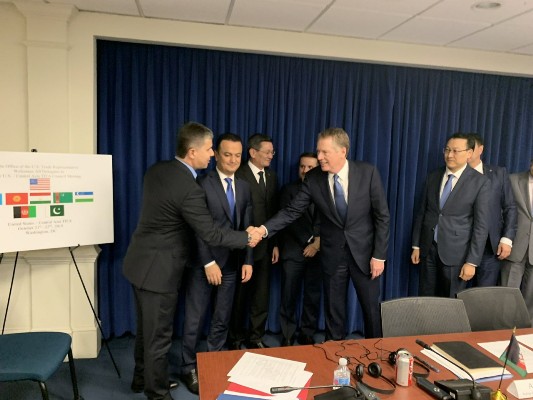
DUSHANBE, 25.10.2019 (NIAT Khovar) – A session of the Council on Trade and Investment Framework Agreement (TIFA), as well as meeting of the delegation of Tajikistan headed by the First Deputy Minister of Economic Development and Trade Zavqi Zavqizoda with the US Trade Representative Robert Lighthizer and American investors were held on October 21-22 in Washington.
Zavqizoda highly ranked the mutually beneficial cooperation of the United States and Central Asian countries and provided information on the goals and priorities of the country’s strategic documents, in particular on Tajikistan’s participation in TIFA, accelerating export development, facilitation of trade procedures, technical barriers to trade, sanitary and phytosanitary measures and cooperation with TIFA member countries.
The parties discussed issues on improving trade and economic relations between Tajikistan and the US, including completed work on implementation of the WTO Trade Facilitation Agreement, prevention of the country’s re-inclusion in the “Special 301 Report” checklist, Tajikistan’s exclusion from the Jackson-Vanik Amendment, usage of the Generalized System of Preferences GSP and increasing technical assistance from the US.
On October 22, the country’s delegation took part in the high-level panel “Economic Cooperation between the USA and Central Asian Countries” of the Uzbekistan and USA Annual Forum, during which the delegation provided answers to questions by US investors about investment opportunities in Tajikistan, digital economy and ways to develop trade and investment with the US.
It was noted that the government of Tajikistan considers the improvement of economic and trade cooperation with Central Asian countries as a priority issue of the country’s foreign policy, which proceeds from friendly relations and kind initiatives of the heads of states.
A meeting of the TIFA Council is held annually. The meeting is focused on the issues relating to the current situation and forecasts of economic cooperation, including trade facilitation, regional trade development, the “Special 301 Report” checklist, intellectual property rights, standards, sanitary and phytosanitary measures and digital commerce.











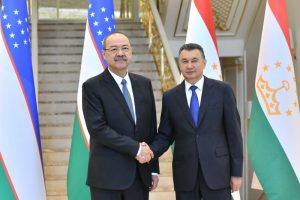 Tajikistan–Uzbekistan Commission Meeting Focuses on Expanding Economic Cooperation
Tajikistan–Uzbekistan Commission Meeting Focuses on Expanding Economic Cooperation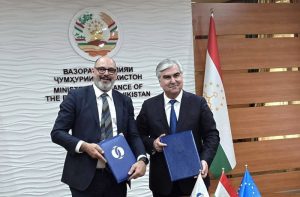 Tajikistan, EBRD sign loan and grant agreements for energy loss reduction project
Tajikistan, EBRD sign loan and grant agreements for energy loss reduction project Tajikistan to Welcome Global Investors at “Dushanbe Invest-2025” Forum
Tajikistan to Welcome Global Investors at “Dushanbe Invest-2025” Forum Tajikistan’s Transport Minister Highlights Importance of Joint Projects in Seoul
Tajikistan’s Transport Minister Highlights Importance of Joint Projects in Seoul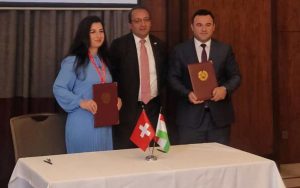 Tajik–Swiss Business Forum Held in Dushanbe
Tajik–Swiss Business Forum Held in Dushanbe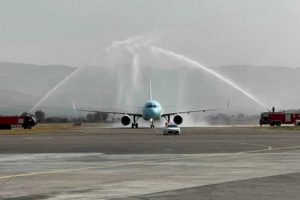 Direct Air Connectivity Established Between Xi’an and Dushanbe
Direct Air Connectivity Established Between Xi’an and Dushanbe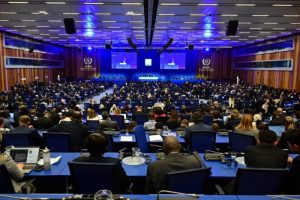 Tajik Delegation Participates in 69th IAEA General Conference
Tajik Delegation Participates in 69th IAEA General Conference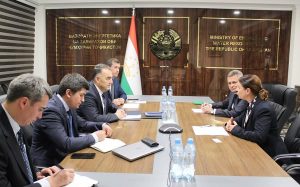 Swiss Cooperation Office Ready to Develop New Initiatives in Tajikistan
Swiss Cooperation Office Ready to Develop New Initiatives in Tajikistan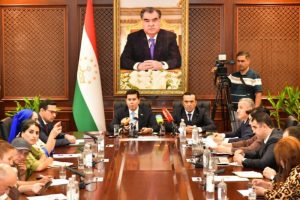 Tajikistan attracts USD213 million from international financial organizations
Tajikistan attracts USD213 million from international financial organizations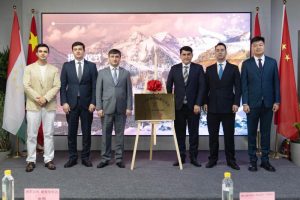 Tajikistan Chamber of Commerce and Industry Opens Representative Office in Beijing
Tajikistan Chamber of Commerce and Industry Opens Representative Office in Beijing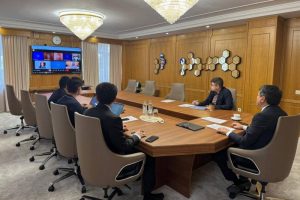 International Artificial Intelligence Conference to Be Held in Dushanbe in October
International Artificial Intelligence Conference to Be Held in Dushanbe in October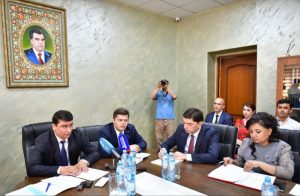 Tajikistan’s Foreign Trade Turnover Exceeds $4.7 Billion in First Half of 2025
Tajikistan’s Foreign Trade Turnover Exceeds $4.7 Billion in First Half of 2025














